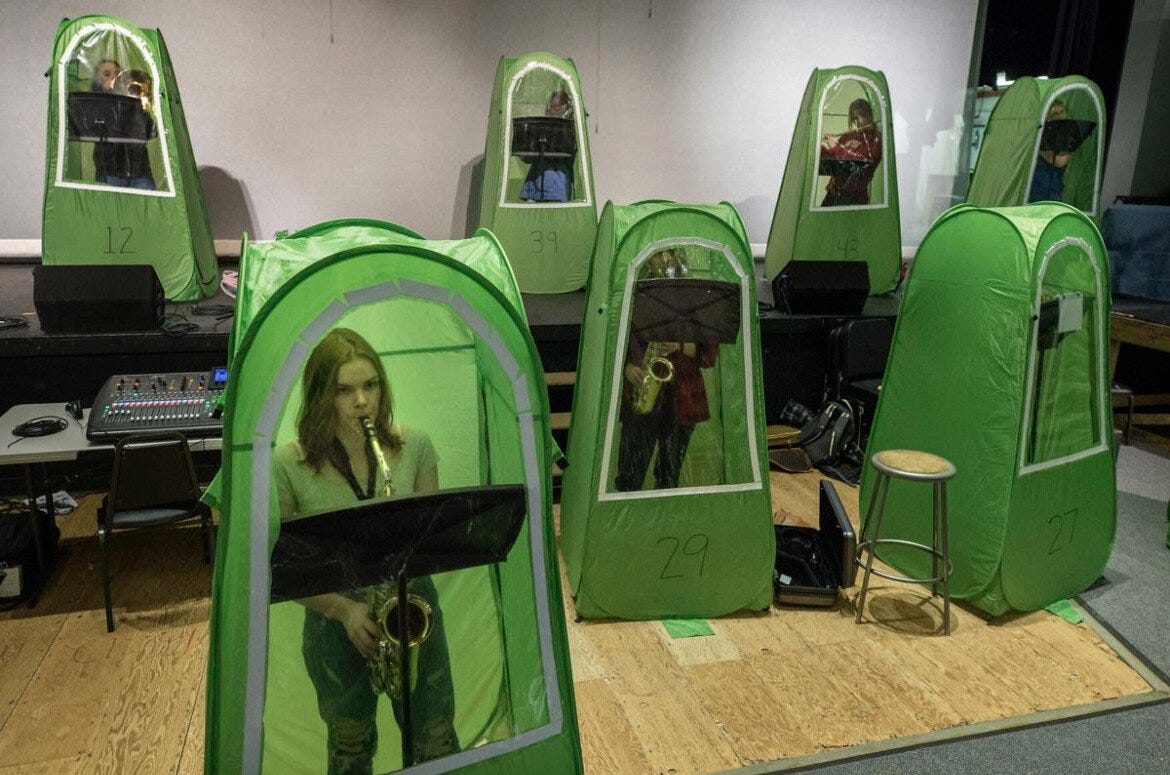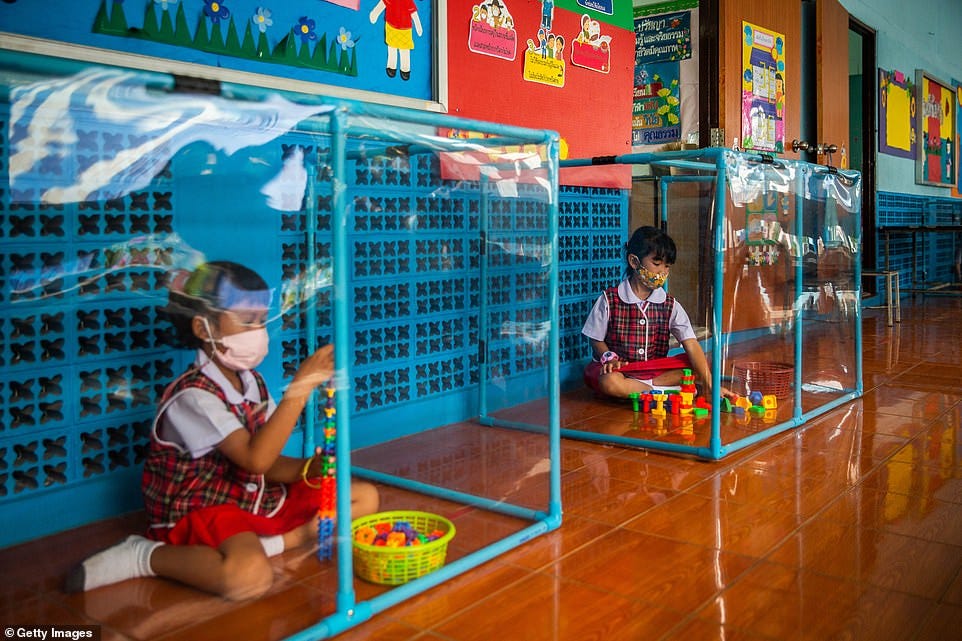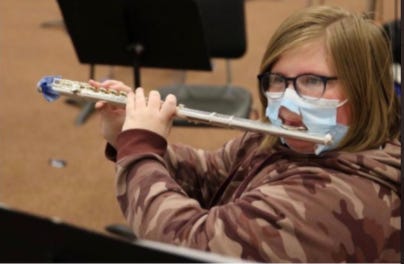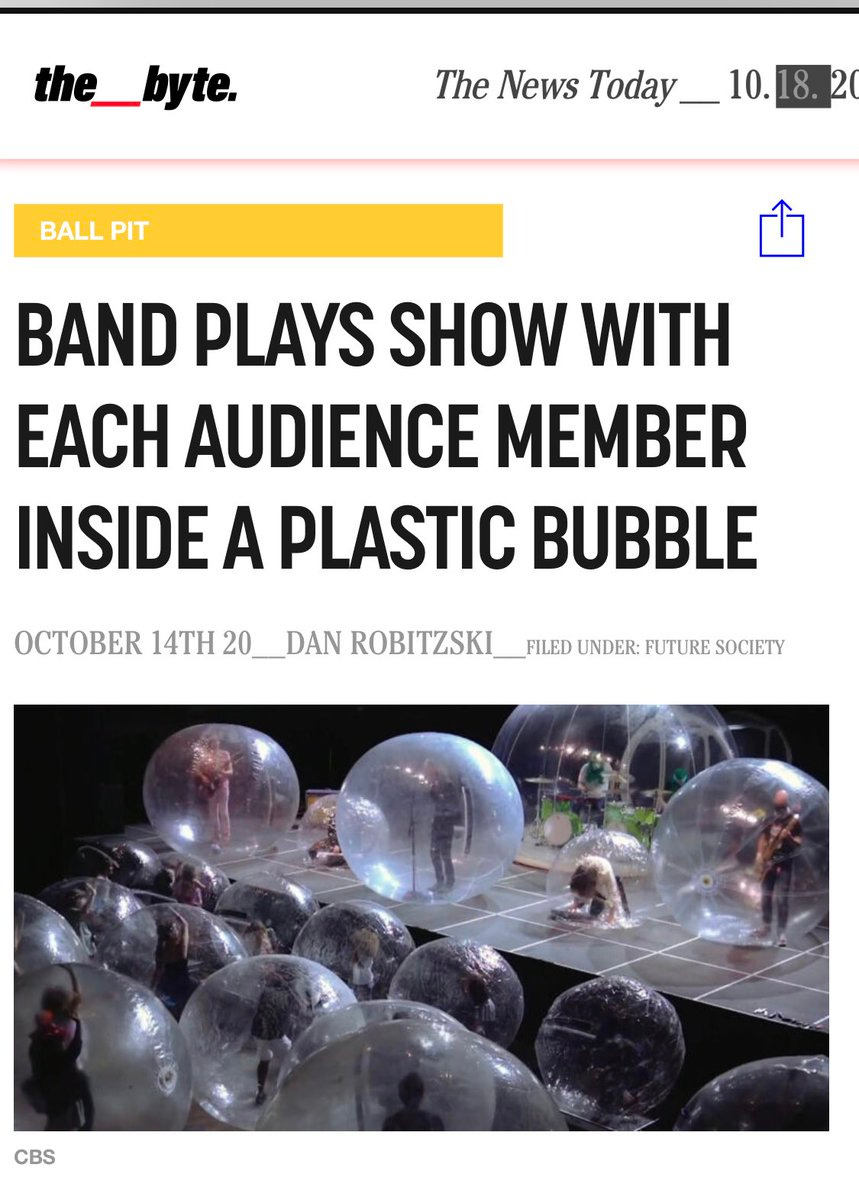Study: 'Neuroticism predicts national vaccination rates across 56 countries'
Which definitely correlates with real world experience, especially on social media
The more neurotic you are, the more likely you were to get vaccinated. So sayeth SCIENCE itself!! (Until this paper gets retracted at least.)
Much hullaballoo and outrage was made over the recently published academic screed titled ‘Cognitive ability, health policy, and the dynamics of COVID-19 vaccination’, which insinuated intelligent people got vaccinated because they were smart, but intellectually challenged people were too unsophisticated and were therefore ‘fooled’ by obvious charlatans and snake oil salesmen to accept all sorts of ‘misinformation’ about the covid vaccines.
While that ‘study’ is obviously garbage, it turns out that there are other studies that attempted to answer this same question, including the following study which regardless of its methodological robustness or lack thereof is obviously true:
Neuroticism predicts national vaccination rates across 56 countries
https://pubmed.ncbi.nlm.nih.gov/36713618/
While we are only going to discuss a few highlights from this study, it is actually written in fairly comprehensible English that is accessible to laypeople for those interested in reading it in full. This study also drops some ‘truth bombs’ not often seen in academic literature.
(Note: all emphasis below is mine)
Defining neuroticism
We examined the personality factor Neuroticism, which corresponds to the relatively stable tendency to experience negative emotions, anxiety and low tolerance for stress.
We examined the well-validated Neuroticism personality factor (McCrae & Costa, 1987; Lahey, 2009), which is the tendency to experience negative emotions, such as anxiety, worries and is associated with low tolerance for stress or aversive stimuli (McCrae & Costa, 1987). People who score high in neuroticism are more prone to understand everyday situations as threatening. Neuroticism, which is directly related to emotional reactivity and sensitivity to threat, appears to be of prime importance for the adoption of a strategy for dealing with a large-scale lethal threat. Neuroticism has been proposed as being important for public health (Lahey, 2009), and, some recent papers have shown that neuroticism positively predicts Covid-19 vaccine acceptance in the UK general population (Halstead et al., 2022) as well as the stability of intention (i.e., attitudes) toward recommended standard vaccinations in German patients with multiple sclerosis (Heidler et al., 2022). We hypothesized that this factor represents an excellent candidate to predict a significant part of variability in vaccination rates across countries.
Results
Correlations with Neuroticism were highly significant for two of the three indicators (at least one dose: r(56) = .395, p = .003; fully vaccinated: r(56) = .376, p = .003), while the association with boosters remained marginal, r(56) = .238, p = .08. Regarding health predictors, the three vaccination rates were indeed significantly associated with variables such as gross domestic product per capita (.626 < r < .677, p < .001), the median age of the country’s citizens (.592 < r < .611, p < .001), and the rate of obesity (.278 < r < .342, p < .05). Population size or density did not correlate with vaccination rates. Importantly, partial correlations between neuroticism and vaccination rates remained significant after controlling for gross domestic product, median age, as well as for obesity rates (BMI >30) (.378 < r < .384, p < .01).
Stepwise regression analyses (Table 2) were then performed by first entering the gross domestic product, then the median age and the obesity rate (BMI >30) in a second step, and in the final step the average neuroticism level per country. The results of these regressions showed that the primary predictor of vaccination in a country was the country’s gross domestic product for all three vaccine indicators. Country gross domestic product alone represented between 41% and 53% of the cross-country variability in vaccination rates (R2 change). Neuroticism was the only other significant predictor for vaccination rate (at least one dose) and represented an additional 9% (R2 change) of the cross-country variance. The richer the country and the higher its average neuroticism score, the higher its rate of vaccination (at least one dose). In addition to gross domestic product, for the fully vaccinated rate, median age significantly predicts 5% of the additional variance while neuroticism adds significantly another 6% to the final model. The booster rate was only significantly predicted by gross domestic product, with neuroticism as well as any other predictors having no significant influence.
These findings highlight that neuroticism significantly predicts variations in country vaccination rates in different continents.
Our results also relate to UK findings showing that lower levels of neuroticism are associated with increased COVID-19 vaccination hesitancy (*see below)
Translation: The level of neuroticism for a country’s population had a statistically significant correlation to vaccination rate - the more neurotic the population, the higher the vaccination rate.
And it’s not like neurotic excesses were in short supply over the pandemic:
(For the record, the GDP - i.e. wealth - of a country had a much larger correlation than the level of its population’s neuroticism, but that doesn’t take away from the correlation between a neurotic population and higher vaccine uptake.)
Ripping on pandemic policies
Although this has nothing to do with the substance of the study, we would be remiss not to mention the following blunt characterization of the infamous and evil NPI’s in the study’s introduction:
Initially, the pandemic was controlled by non-pharmacological interventions (NPIs) like masking or containments, while many researchers argued that NPIs had either little effect (Bendavid et al., 2021) or that policymakers were unable to weigh up costs and benefits of these NPIs properly (Lewis, 2022).
Fact check: true. Or actually, mostly true, because it is still far too generous a characterization of the vile policy abominations inflicted on humanity under the guise of “Emergency!!”. But for an academic paper, it is the equivalent of saying what I just wrote.
Not the first study to show a link between neuroticism and vaccine uptake
There’s at least one other study that found a connection between neuroticism and “Yes, jab me again!! Please!!!”. An analysis of almost 10,000 UK adults found that “lower levels of neuroticism was associated with COVID-19 vaccination hesitancy”:
COVID-19 and seasonal flu vaccination hesitancy: Links to personality and general intelligence in a large, UK cohort
https://pubmed.ncbi.nlm.nih.gov/35710507/
Yes, this study also tried to claim that “lower levels of general intelligence were associated with COVID-19 and seasonal flu vaccination hesitancy”, which is not well predicated but is beyond the scope of this article to address (it’s along study).
🔹🔹🔹🔹🔹🔹🔹🔹🔹🔹🔹
Caveats
There are methodological limitations to this study, and there is only one listed author, which seems unusual for this type of analysis.











First, those in the "vaccine hesitancy" category are astute enough to know that any studies correlating jab-refusal to lower intelligence are BS. Sadly, everyone else may just believe it. Second, I can offer a much more accurate assessment of those who saw through the incessant lies and gaslighting; such individuals prefer to engage in critical thinking, forgoing orthodoxy, dogma, group think, and societal pressures to vigorously research and pursue the truth. To do so, has cost many of us a great deal. Those who stood up to say "no" to the inescapably malicious, multi-pronged attack on our country spent countless hours digging for the truth, only to find and then confront and digest the heinous agenda of the globalist elites, who are behind all of the untold evil. We were left to not only grapple with a more brutal reality than could have ever been conceived of prior to 2020, we were also left to do so alone, swimming against the tide. All who risked everything to speak and share the truth, despite losing jobs, losing standing their communities, losing friends, losing family connections, losing peace of mind, these are people who are the faces of sheer courage. We also know that the world may not come to realize our sacrifices during our lifetimes. Still, we shall not be moved.
"vaccine hesitancy"...in the real world, only those who didn't have the ability to tell the difference between lies and truth, those who didn't have the will and ability to look around to understand what's going on, those who live in netflix or swallow not chewing the official rhetoric, they injected themselves. no man in his right mind suddenly injects a substance into his body just because he is told to (even when you buy shoes, think and look about it until you choose), without detailed information, without evidence, without reason, without informed consent. moreover, no sane person can believe that all of a sudden, the "state" is interested in the personal health of an individual and for this reason it can impose on him where to go, when to stay indoors, when and how to travel, what to say, what to believe, how to disguise, how many people he is allowed to meet. no man in his right mind could believe that in the same second, all countries proceed in the same way, as if the particularities had been wiped away with a sponge overnight. and so on. Thanks God I live in country where just around 30% (and still is too much) got the poison. Let's see how many will take it this next round.